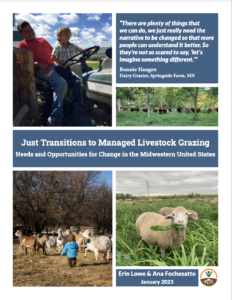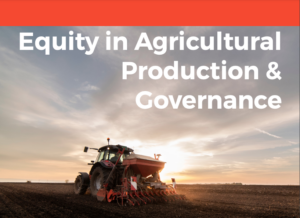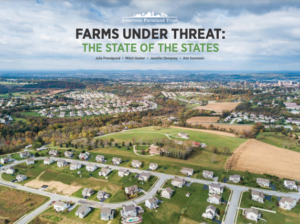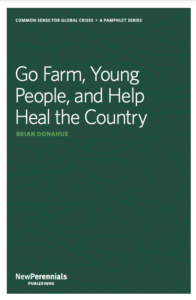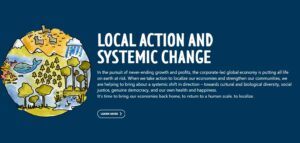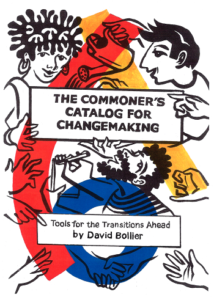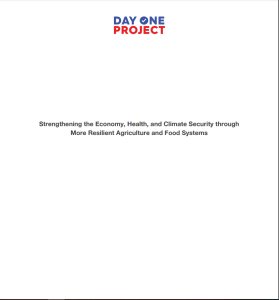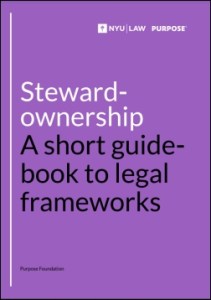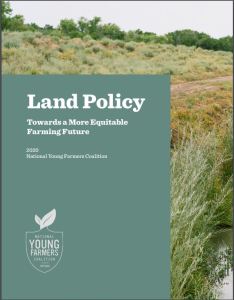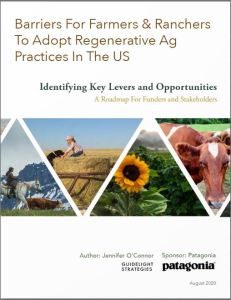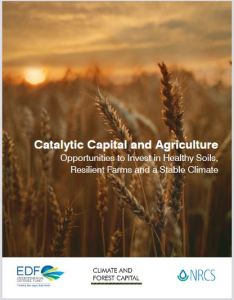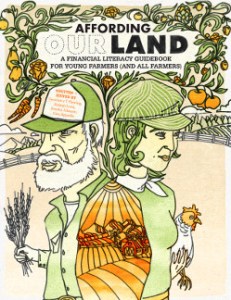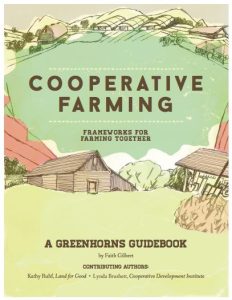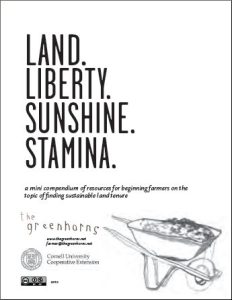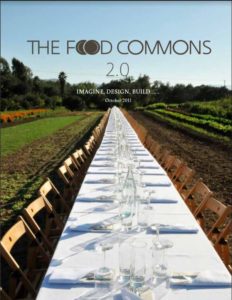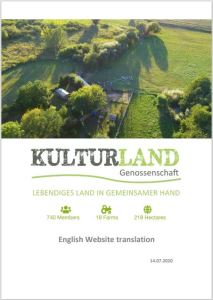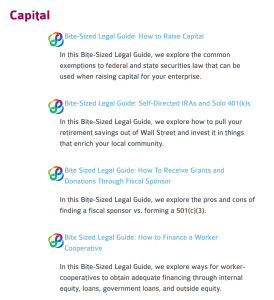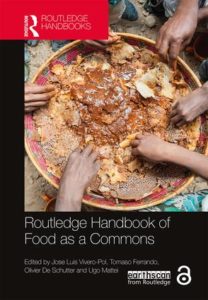
Guidebooks & Reports

Dig Deeper into Guidebooks and Research Reports
This section shares in-depth research, findings and reports by independent entities such as Patagonia, the Young Farmer’s Coalition, American Farmland Trust and the Environmental Defense Fund. These guidebooks and reports offer a thorough investigation into our current food system and how it needs to change based on evidence-based findings.
Just Transitions to Managed Livestock Grazing
Midwest farmers and members of the managed grazing community are working toward a future in which the food system supports community and environmental well-being. Grassland 2.0 has recently produced a report and a series of briefs that synthesize recommendations from nearly 130 people in the sustainable agriculture community on how to create a ‘just transition’ in agriculture.
A just transition would enable those who work in agriculture and food systems to regain control over agricultural land, markets, and institutions; address inequities in the distribution of power and resources; and support healthy environments, communities, and livelihoods.
This report shares ideas on how to support managed livestock grazing in a way that addresses inequities and creates a food system that supports everyone.
Equity in Agricultural Production & Governance
How can the 2023 Farm Bill expand access to land and credit for marginalized producers?
Researchers from Vermont Law School, Harvard, and Pace University provide recommendations for how policymakers can use the 2023 Farm Bill to increase access to land, credit, and education for marginalized producers, advance equity across USDA programs, facilitate farmland transitions to disadvantaged farmers and more.
Farms Under Threat: The State of the States
American Farmland Trust’s new report used spatial mapping analyses of agricultural land conversion to provide unprecedented insights into the status and fate of American farmland.
Between 2001 and 2016, 11 million acres of farmland and ranchland were converted to urban and highly developed land use (4.1 million acres) or low-density residential land use (nearly 7 million acres). The report also shows how states have—or have not—responded to the threats of agricultural land conversion.
Go Farm, Young People, and Help Heal the Country
For more than a century rural America has endured a boom-and-bust economy that has supplied wealthy processors with cheap food, timber, and fuel, but has left the countryside impoverished, and nearly deserted.
Rural America hasn’t been “left behind” in the march of progress—it has been systematically gutted.
Associate Professor of American Environmental Studies Brian Donahue presents a vision for rural revitalization which includes accessible land and economic support for farms as vital goals. Commons can help.
Local Futures’ Localization Action Guide
In the pursuit of never-ending growth and profits, the corporate-led global economy is putting all life on earth at risk. When we take action to localize our economies and strengthen our communities, we are helping to bring about a systemic shift in direction – towards cultural and biological diversity, social justice, genuine democracy, and our own health and happiness.
It’s time to bring our economies back home, to return to a human scale, to localize.
The Commoner’s Catalog for Changemaking
The commons is rising. Looking beyond the market and state, commoners are applying their social imaginations and collective power to build a new world of possibilities. The emerging Commonsverse can be seen in relocalized food systems and community land trusts…in racial empowerment through collective action and mutual aid…and in free and open source software, peer production, and platform cooperatives.
Commoning is helping communities to steward scarce water supplies, farmers to develop varied forms of regenerative agriculture, and artists to reclaim control of their creative lives. Ordinary people are becoming more self-reliant through time- banking and collaborative finance, care collectives and gift economies, and alternative local currencies.
In 25 thematic sections, The Commoner’s Catalog for Changemaking explores these and many other transformations through profiles of groundbreaking commons projects, books, websites, organizations, and activist innovations.
Day One Project: Strengthening the Economy, Health, & Climate Security through Resilient Agriculture and Food Systems
For those who can afford to fill their fridge with the click of app or live in a neighborhood with fresh produce around the corner, it is easy to forget how complex and fragile our food systems can be. However, for millions of Americans who suffer from poor health because of food insecurity, or farmers and ranchers whose yields are decreasing along with the nutrient density of their product, that fragility is felt every day. Sustainable food systems engender intricate connections and feedback loops among climate change, public health, food security, national security, and social equity. When one of these factors is overstressed, disaster can result.
Steward-ownership: A short guidebook to legal frameworks
The Purpose Foundation believes that redefining corporate ownership and retooling the motivations that underlie decision-making in business is an essential step on the road to building an economy that supports people and the planet. The current normative legal forms for corporate ownership have made it difficult for businesses and the leaders within them to deliver on their long-term purpose and economic success, maintain their relationships with stakeholders, and operate within the planetary boundaries (2020).
Land Policy Towards a More Equitable Farming Future
A 2020 Report released by the National Young Farmers Coalition. Land, policy, and power are closely intertwined. As millions of acres of U.S. farmland are changing hands, public policy holds the responsibility and the promise to facilitate land justice for the next generation of growers. Read our new report and explore this website to understand the issue, see policy solutions, and take action.
Barriers For Farmers & Ranchers To Adopt Regenerative Ag Practices in The US
In this Patagonia-sponsored report, author Jennifer O’Connor highlights the key barriers our farmers and ranchers are facing in moving towards a healthy, resilient, and regenerative food and ag system. In the report, Agrarian Trust and the Agrarian Commons model are featured as examples of critical pathways supporting the breaking down of these barriers.
How Catalytic Capital Can Support Sustainable Agriculture
A report by EDF and Climate and Forest Capital finds that there is a profound need and opportunity for catalytic capital to support and scale new climate-smart financial models for agriculture. The Agrarian Commons model is presented as a case study that offers an opportunity to transfer and restructure farm ownership and management in a way that provides more affordable land access and tenure to mid-sized farms, and removes the weight of a traditional mortgage from their shoulders in return for their commitment to long-term land stewardship.
Affording OURLAND: Greenhorns Guide to Financial Literacy
Access to farmland persists as the top challenge faced by new farmers in this country. The purpose of this little book is to interprete the landscape of options available to young and beginning farmers who wish to access land and credit for starting or growing farm businesses.
Cooperative Farming: Frameworks for Farming Together
“It’s clear that we face common challenges. It’s also clear that by working together, we get more than just a solution to a problem: we get solidarity.” The Greenhorns presents Cooperative Farming, an in-depth resource for forming collaborative businesses. Compiled from 42 interviews with farmers and professionals, this is a how-to handbook on structuring and operating a group venture.
Greenhorns Mini Compendium on Land Tenure Resources
A mini compendium of resources for beginning farmers on the topic of finding sustainable land tenure. This compendium was put together for our Land Access Forum for beginning farmers in the Hudson Valley on September 29, 2010 at the Pfeiffer Center in Chestnut Ridge, NY. We give incredible thanks to the many organizations who contributed resources for the Forum and were willing to share their materials with us.
The Food Commons 2.0
The Food Commons is a new economic paradigm and whole system approach for regional food. Inspired by the growing demand for local/regional food and urged by the “wake-up call” of the 2008 recession, plus concern about other critical issues such as food access and sovereignty, health and chronic diseases, environmental and community resiliency, Jim Cochran and Larry Yee assembled a team in the fall of 2009 to draft a concept paper for what became known as the Food Commons. The effort was funded by a small grant from the California Roots of Change organization. The result was a conceptual blueprint for a national network of regional food systems that laid out the essential core components and other important elements, all wholly integrated.
Kulturland Genossenschaft
Learn about German organization Kulturland eG and what they are doing to create a “new commons.” “We believe that the fertility of land should not be a financial investment with a corresponding return, but should be cared for and preserved for future generations. Therefore, we organize common land ownership: a “new common land” (“new commons”).”
We make the land available to farms on a long-term basis under favourable conditions. In this way, we support regionally-embedded ecological farms which do direct marketing or community supported farming (CSA), enable the public to visit the farm, carry out nature conservation measures, breed local varieties of plants and animals, integrate people in need or work with school children in an educational way.”
Routledge Handbook of Food as a Commons
From the scientific and industrial revolution to the present day, food – an essential element of life – has been progressively transformed into a private, transnational, mono-dimensional commodity of mass consumption for a global market. But over the last decade there has been an increased recognition that this can be challenged and reconceptualized if food is regarded and enacted as a commons.
This Handbook provides the first comprehensive review and synthesis of knowledge and new thinking on how food and food systems can be thought, interpreted and practiced around the old/new paradigms of commons and commoning. The overall aim is to investigate the multiple constraints that occur within and sustain the dominant food and nutrition regime and to explore how it can change when different elements of the current food systems are explored and re-imagined from a commons perspective.

